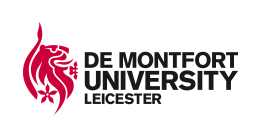In The State of Open Data 2023, over 6000 researchers were surveyed globally and almost three-quarters of them said that they had never received support with data sharing.
As open data policies and mandates have increased globally, the pressure on libraries to provide a robust research data management support offering for their researchers is increasing.
Often, research data management within the library is managed and maintained by small teams and even when this isn’t the case, competing priorities often see research data management specialists with a huge variety of responsibilities, so with limited resources, how can the library ensure researchers have access to the support they need to share their data openly?
Figshare for Institutions has been adopted by over 150 organizations worldwide and many of those organizations have developed innovative and resource-conscious initiatives to increase researcher adoption of proficient research data management and repository usage.
One of those organizations is De Montfort University, in Leicester in the United Kingdom. Dr. Aamir Hussain, the Research Data Project Officer at the University devised an impressive suite of support materials and a workflow that ultimately fostered an active research data management community, despite absorbing only limited resources from the library team.
When looking to procure a data repository solution, De Monfort’s primary driving factor was the need to meet increasing funder requirements. However, after selecting Figshare and moving ahead with the implementation, challenges did arise, notably the very small team that was involved in the project (only a 0.5 FTE), as well as the fact that De Montfort is not a traditionally research-intensive institution, therefore motivation, awareness and engagement levels for utilising research software were low across the researcher community.
Aamir quickly realised that to effectively engage the De Montfort research community with Figshare and realise the ultimate end goal of a proficient research data management support offering being made widely available across the university, he would need to wear many different hats. He decided to utilize skills that you might often see in a salesperson or a marketing professional, to build a robust engagement and adoption strategy.
Aamir’s strategy focused on three key areas:
Streamlining the influx
Aamir’s first step was to streamline the influx of researchers who wanted to use Figshare in a way that meant researchers would need to discuss their use case and by default their research data management plans with Aamir himself. By capping the storage for individual researchers at 0kb, researchers would then be prompted to engage in a conversation about their research data management and Aamir could simultaneously ensure they were executing data sharing effectively and offer additional support and advice depending on the researchers’ awareness and competency levels. This tactic also eliminated the risk of unwanted or unsuitable items being uploaded to Figshare.
The process of contacting Aamir was highly automated, as he implemented a form that gathered all of the necessary information and assessed the researchers’ RDM awareness, enabling the support that was subsequently provided to be tailored and effective.

Automating the training
Speaking at length with every researcher who needed to use Figshare would clearly create a big strain on resources, and whilst the initial contact regarding storage and the researchers’ ultimate plans for their data sharing via the form described above were important, Aamir subsequently looked to make the practical steps that followed as automated and as ‘self-serve’ as possible.
A training course was created with walkthrough videos, ranging from the very beginnings of ‘getting started’ with Figshare to the practical steps required to create a Figshare item, publish it and use keywords to manage it and increase discoverability.
About 90% of Figshare use enquiries were directed to the training course which minimised Aamir’s contact time and left him with more capacity to support more complex projects and queries, allowing him to focus on the bigger questions of FAIR data sharing and RDM, rather than the intricate practicalities.

Using individual personal outreach
As well as making the process of using Figshare as easy and as streamlined as possible, Aamir also took significant steps in the phase immediately after implementation to ‘pitch’ Figshare to various faculty groups, utilising traditional ‘sales’ skills.
He did several presentations that spoke directly to the motivations of researchers and framed Figshare as something that could help them achieve their goals; more credit for all of their research, further opportunities for research funding and the potential reach and influence of research shared in Figshare, via Altmetric attention data and citation data.
He also showcased examples of non-traditional research outputs (NTROs) such as dance performances or music recitals and noted that for the researchers working in the arts and humanities, this kind of research output is their ‘research data’ and should be treated as such.
The results of all of Aamir’s efforts since 2019 are extremely exciting! De Montfort University now has over 45 externally funded projects in Figshare and during the previous REF, the library was successfully able to share and showcase their NTROs. Aamir’s strategy for fostering an active and engaged research data management community has ultimately paid off, as using Figshare to share a huge variety of research outputs has become a staple of the research process at DMU.

You can view De Montfort University’s Figshare repository here.
If you’d like to catch up on our webinar with a presentation from Aamir on his work, you can find that here.
Figshare for Institutions enables institutions with smaller library teams and limited resources to implement workflows that work for them. Its user-friendly interface and the wealth of functionality it has to support all avenues of research data and supplemental material means it is the repository of choice to engage a diverse researcher community and encourage streamlined and proficient research data management.
Aamir left De Montfort University in December 2023 and continues to be actively engaged in research communications. You can reach out to Aamir via LinkedIn.

